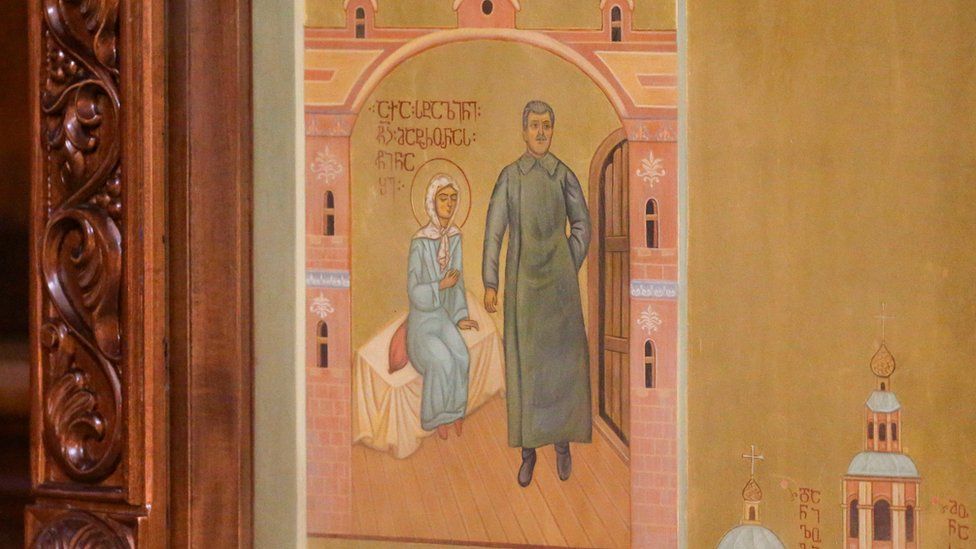The Georgian Orthodox Church has called for changes to an icon depicting Soviet dictator Joseph Stalin hung in a cathedral in the capital, Tbilisi.
The icon depicts scenes from the life of St Matrona of Moscow, a 20th Century Russian visionary and healer.
In one, the Russian Orthodox saint can be seen blessing Stalin.
The Patriarchate of Georgia said there was "insufficient evidence" the saint and Stalin ever met and that changes therefore needed to be made.
"The donors of the icon are called upon to make the appropriate changes to the image themselves - or we can do it ourselves," the statement said.
The Alliance of Patriots, a pro-Russian political party, said it gifted the icon to the cathedral several months ago.
But it only came to prominence this year, after an opposition former politician Giorgi Kandelaki highlighted its presence in protest at what he said was an attempt to present "one of the biggest mass murderers in history" in a "positive light".
The icon has been courting controversy since Mr Kandelaki drew attention to it. Earlier this week, an activist sprayed it with paint in protest.
Nata Peradze published a video of her throwing paint on the icon and said she was protesting against what she saw as the glorification of a tyrant.
"Stalin killed my whole family, he instilled terror and fear, he was not a hero," she told Politico, adding that she has been receiving death threats since posting the video on Facebook.
She also said her house has been targeted by mobs since the incident.
In its statement, the Patriarchate of Georgia said that an icon could depict "real stories related to the life of the saint, including rulers and ordinary people, heretics and persecutors of the Christian faith".
"However," it added, "this does not mean at all that the image glorifies these figures or attributes any dignity to them."
Stalin has a complex legacy in Georgia.
He was born Iosif Dzhugashvili in the town of Gori, in the east of the country, in 1878. A key figure in the Russian revolution which brought the Bolsheviks to power, he ruled the USSR from 1924 until his death in 1953.
Millions died as Stalin imposed iron discipline and state terror to root out "enemies of the people" and build a communist state.
Many people in the small South Caucasian country reject the legacy of the Soviet Union.
But some still view Stalin with some pride because he emerged from a humble background in Georgia to rule a superpower and defeat Nazi Germany.

